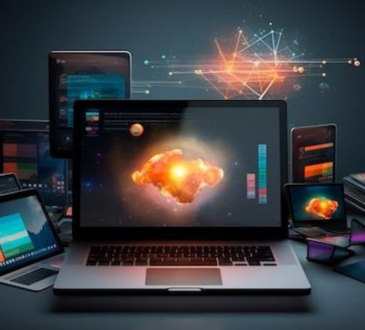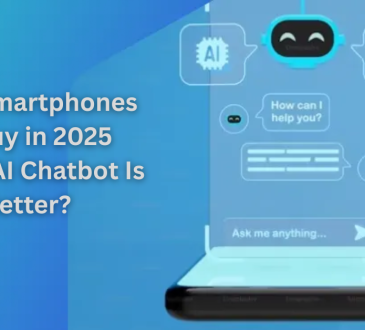
Smartphones have evolved into powerful mini-computers, holding personal messages, passwords, and even payment details. But with this convenience comes vulnerability. In 2025, cybercriminals have become smarter, using AI-powered tools to breach mobile security and steal user data. Whether it’s through fake apps, phishing links, or unsecured Wi-Fi, mobile threats are everywhere.
At The Techno Tricks, this guide explains how to keep your phone safe from viruses and hackers, while also exploring how AI chatbots like Chat GPT, Google Gemini, and Samsung Galaxy AI can help strengthen your device’s digital defence.
How Hackers and Viruses Target Smartphones in 2025
Common Mobile Threats Every User Should Know
Smartphone attacks in 2025 often come disguised as harmless links, game apps, or free tools. Hackers exploit app permissions, SMS phishing (“smishing”), and unprotected public Wi-Fi to infiltrate devices. These infections can lead to data theft, camera access, and even remote phone control.
The Role of Artificial Intelligence in Cybercrime
While AI is helping to prevent attacks, it’s also used by hackers to create realistic scams and malware. Deepfake calls, AI-written phishing emails, and cloned security alerts are becoming common. This makes AI-driven protection tools even more essential in 2025.
More Related:
Proven Ways to Keep Your Phone Safe from Viruses and Hackers
| Security Tip | Why It Matters | AI Assistant That Helps |
| Use Strong Passwords or Biometrics | Prevents unauthorized access to your device. | ChatGPT helps generate secure passwords. |
| Avoid Public Wi-Fi Networks | Hackers easily intercept data on open connections. | Galaxy AI detects unsafe connections. |
| Download Apps Only from Trusted Sources | Unverified apps can carry spyware or malware. | Google Gemini checks app permissions. |
| Update Software Regularly | Patches fix system vulnerabilities. | Siri or Gemini can remind you automatically. |
| Enable Two-Factor Authentication (2FA) | Adds a protective verification step for logins. | ChatGPT can guide setup instructions. |
| Use Mobile Antivirus or Security Tools | Detects hidden malware and suspicious files. | Galaxy AI and Gemini monitor threats. |
How AI Chatbots Help Improve Mobile Security
ChatGPT – The AI Educator for Safer Digital Habits
ChatGPT stands out as an intelligent guide that helps users understand cybersecurity threats and teaches safe online behavior. It can explain phishing detection, password safety, and privacy measures in simple language.
Google Gemini – Real-Time Security Assistant
Integrated into Android devices, Google Gemini monitors network traffic and alerts users about potential data leaks. It automatically flags unsafe links and suspicious app behavior, providing real-time defense.
Samsung Galaxy AI – Your On-Device Security Partner
Galaxy AI works directly within Samsung devices to detect harmful apps, manage permissions, and warn users about malicious Wi-Fi connections. It also uses on-device AI to protect user privacy without sending data to the cloud.
ChatGPT vs Google Gemini vs Galaxy AI – Which Is the Best for Mobile Security?
| AI Chatbot | Main Strength | Security Advantage | Best For |
| ChatGPT (OpenAI) | Teaches cybersecurity awareness and best practices. | Great for education and personal protection. | Users seeking guidance and safety advice. |
| Google Gemini | Offers real-time security monitoring and link scanning. | Detects malware before installation. | Android users and professionals. |
| Galaxy AI (Samsung) | Built-in defense with smart alerts and privacy tools. | Protects data offline through on-device AI. | Samsung users focused on privacy. |
Analysis:
While Google Gemini offers the most proactive threat detection, ChatGPT is the best for learning safe habits, and Galaxy AI excels in local protection. Together, they represent the next generation of mobile security technology.
Essential Tips to Strengthen Your Phone’s Digital Defense
- Regularly back up your phone data to a secure cloud.
- Avoid clicking on unknown links in messages or emails.
- Keep Bluetooth and location services off when not in use.
- Review app permissions monthly to prevent privacy leaks.
- Use AI-powered antivirus software for layered protection.
Expert Recommendations from The Techno Tricks
Based on current testing, The Techno Tricks recommends the Google Pixel 9 Pro for Android users and the iPhone 16 Pro Max for Apple users — both integrate AI security systems effectively. For those in the Samsung ecosystem, Galaxy S25 Ultra remains a solid choice with its advanced Galaxy AI protection.
FAQs:
How can I tell if my phone has a virus?
Unusual battery drain, pop-up ads, and overheating are common signs of malware or spyware infections on your smartphone.
Are free antivirus apps effective in 2025?
Free apps can offer basic protection, but premium or AI-based antivirus software provides real-time scanning and stronger defense.
Can AI chatbots actually prevent hacking attempts?
Yes, AI chatbots like Gemini and Galaxy AI analyze behavior patterns to detect and block suspicious activity before a hack occurs.
Which is safer: iPhone or Android in 2025?
Both platforms have improved security, but Android offers more AI-powered protection options, while iPhones prioritize privacy and closed-system control.
What’s the simplest way to protect my phone daily?
Keep software updated, avoid unknown links, use two-factor authentication, and let AI assistants like Gemini or Galaxy AI monitor your system for unusual activity.
Conclusion:
Smartphone security in 2025 is about being proactive, not reactive. As hackers become more sophisticated, users must rely on both human awareness and AI-driven defense systems. With tools like ChatGPT, Google Gemini, and Galaxy AI, protecting your phone from viruses and hackers has never been easier. The future of cybersecurity lies in blending human caution with artificial intelligence, a balance that ensures your digital life remains safe, private, and under your control.




